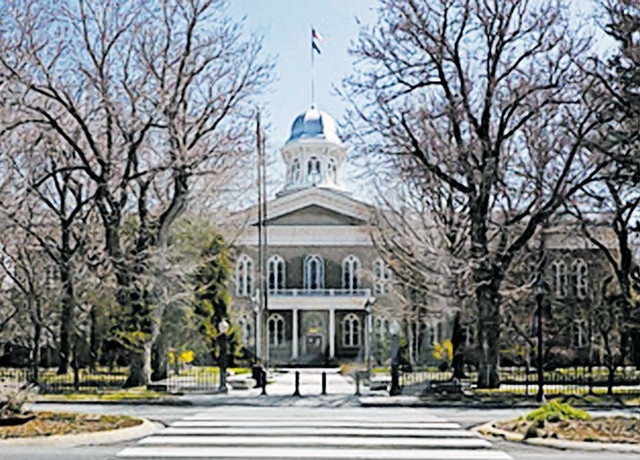Nevada doesn’t have much extra money to save programs from shutdown

CARSON CITY — If Nevada elected officials decide to call a special session of the Legislature to deal with the ongoing federal government shutdown, they won’t have much money in the bank to address critical issues from funding food stamps to paying workers to process unemployment insurance claims.
A Sept. 25 report detailing tax collections from fiscal year 2013, which ended June 30, shows $45.9 million more than what was forecasted, a modest surplus to make any substantive differences in several programs that will lose federal funding on Nov. 1 without a resolution in Washington, D.C.
The food stamp program alone, now called the Supplemental Nutrition Assistance Program, runs $45 million a month.
Officials said this week that no special session is yet being contemplated as Congress works to craft a deal by Thursday.
Gov. Brian Sandoval said Monday he received another briefing from his Cabinet on the effects of the shutdown and that he is taking it a day at a time for now.
“I can’t rule anything out,” he said. “But as it stands now, we’re ready for any situation that comes about.”
Sandoval was told by several of his Cabinet members at a meeting last week that federal funding for several critical federal programs, including food stamps, will run out by the end of the month. Funding to pay state workers who process unemployment benefits will also be exhausted, meaning no workers to issue checks to Nevada’s jobless population.
Assembly Speaker Marilyn Kirkpatrick, D-North Las Vegas, said Democratic leaders in the Legislature are in constant contact with Sandoval’s office on the status of the shutdown but that no planning for a session has begun.
“We are not there yet,” she said. “We hope something gets done this week.”
Rick Combs, director of the Legislative Counsel Bureau, said a special session could be arranged pretty quickly if all that was required was a brief session to approve a previously worked out plan to fund critical needs. The main preparation would be to give lawmakers adequate notice that they would need to be in Carson City on a specific date for a session, he said.
“If the decisions regarding what they were going to consider were made ahead of time, we would only need a few days to get things up and running from an administrative standpoint,” Combs said.
Depending on the complexity of the issues considered during such a special session, costs would likely run $80,000 to $100,000 for the first day and between $40,000 and $50,000 for each additional day, he said.
Costs would include hiring staff and paying lawmakers their daily salary of about $150 and expenses for travel and accommodations in Carson City.
Contact Capital Bureau reporter Sean Whaley at swhaley@reviewjournal.com or 775-687-3900. Follow him on Twitter @seanw801

Government shutdown
See a roundup of all our coverage:
Everything you need to know about the government shutdown
Nevada Representatives
On each website, click on Contact for locations of offices in Nevada and to send a message.












